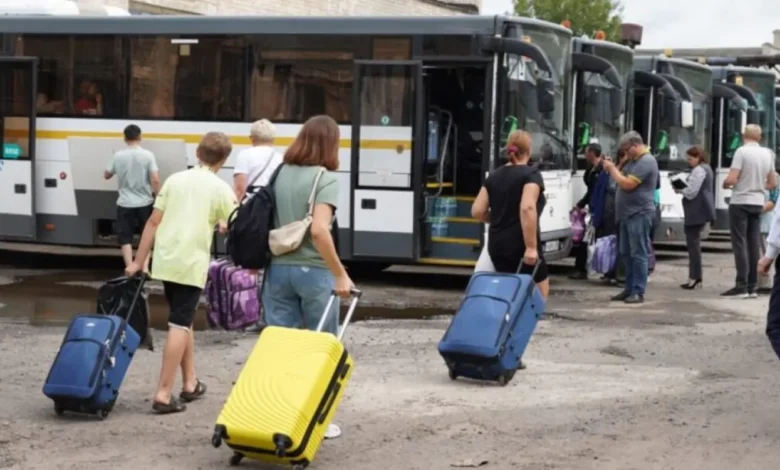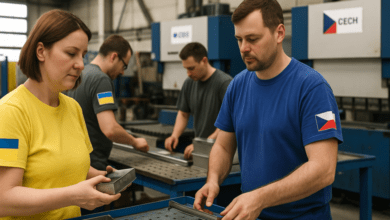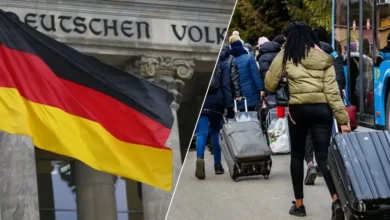What makes Ukrainian refugees return and why many fail to take this step

The fourth year of the war created a new reality for millions of Ukrainians. From May 2022, the Ukrainian-Polish, Ukrainian-Hungarian and Ukrainian-Romanian borders have become both a gateway to security and a painful symbol of homelessness. Going outside the country, people saved children, sought shelter from drones, mines and rockets. However, today, despite the absence of a cessation of hostilities, more and more Ukrainians are returning from abroad or are thinking about it. Each such decision is a complex internal conflict between the burden of war and the burden of foreignness, between responsibility and fear, between the reality of home and the reality of security.
Return as a choice — sometimes against logic
For data According to the International Organization for Migration, more than a million Ukrainians have already returned home since the start of the full-scale invasion. Some of them — as early as 2022, some — throughout 2023. But from October 2024 to March 2025, the highest wave in the last two years was recorded: 134 thousand people. This indicator shows that the desire to return does not disappear, even if the circumstances have not become safer. At first glance, there is no logic in this. But the data and interviews with those who have dared show: the logic of the return is not in the reduction of risks, but in the impossibility of staying away.
The main motive is the need to be at home. According to an IOM study, about 70% of those who returned cited the desire to reunite with loved ones or return to their usual environment as the main reason. This explains why more often they return alone: mothers – to their husbands, children – to their grandmothers, and not as a whole family. In many cases, the emotional burden outweighs even the objective threat.
Another factor that shapes the decision is the availability of housing. 82% of those who returned had somewhere to return to. This is not necessarily a full-fledged home in the sense of home security — sometimes it is the remains of an apartment without windows or a village that has long been without electricity. But the very fact of “own roof over your head” turned out to be decisive for many. Even in spite of the war.
At the same time, 6% returned to dilapidated or unfinished homes — and this is not a statistical error, but an example of how a strong desire to return prevails over a rational assessment of life. People are ready to return to the foundation with a cover, if only it were their foundation. It’s not about comfort, it’s about roots.
At the same time, a noticeable difference between regions was recorded. Residents of the western and central regions return most often. This is expected: either there are no active hostilities in these territories, or the threat of shelling is less. Only one in four returns to the frontline regions, and among the internally displaced, almost one in two. Such a discrepancy shows that movement in wartime is not subject to the classic laws of “from danger to safety.” Attachment to a place, relatives nearby, knowledge of the context remain important, even if all this is close to danger.
Necessity and hopelessness
A third of those who return cite the availability of work as a reason for returning. But here a paradox arises: it is more difficult for Ukrainians who went abroad to get a job in Ukraine after returning than for those who stayed or were internally displaced.
35% of the interviewed refugees, who were looking for a job after returning, were faced with the fact that there are no vacancies in the regions. Another 20% could not find a job with a flexible schedule. Added to this is the high level of unemployment among returnees. This creates a paradoxical situation: people return because they want to work, but cannot realize this desire due to a lack of offers.
Half of those who have already returned indicate serious difficulties with access to medicines, medical services, transport, construction materials. These aspects are often underestimated in the public debate. But they are decisive: having a roof does not mean rebuilding your life. Without the ability to restore health, take a child out of the village, buy tiles or a roof, the return can turn into a temporary stop, rather than a real return.
Invariably, the main reason that deters them from returning is danger – 63% of respondents called it decisive. At the same time, almost 60% of refugees said they would return if the war ended. But for many, war is not all about missiles and drones. This is constant anxiety, the night in the corridor, the absence of a school that works stably. That is why even returning to Kyiv or the relatively “calm” Lviv is not always perceived as a real alternative.
There is another factor that is becoming more and more noticeable – financial exhaustion. The share of those who returned due to lack of funds abroad increased from 2% to 5%. This is not the majority, but the trend is obvious. Many lost social benefits, could not adapt, could not find a job. Attitudes, rules, aid policy have changed in Europe. After two years of living in a temporary regime, it became clear: for many there is nothing more to look forward to.
Ukrainians return when they do not have the resources to stay, they feel that the children are losing contact with their father. They also return when older parents live under the border, but refuse to evacuate. And they often return – not because it has become safer, but because they simply cannot be anywhere else but home.
Therefore, the return of Ukrainians from abroad depends not only on security, but on whether there is somewhere and to whom to return, whether there is a job, the opportunity to educate children, take care of parents. For many, the decision is dictated not by the improvement of conditions, but by the impossibility of staying further in another country. People return for practical reasons, often against fears. But the same circumstances — shelling, lack of stable income, limited access to medicine — make them hesitate or leave again. Therefore, the return today is not a fixed stage, but rather an attempt to stay on familiar ground.





